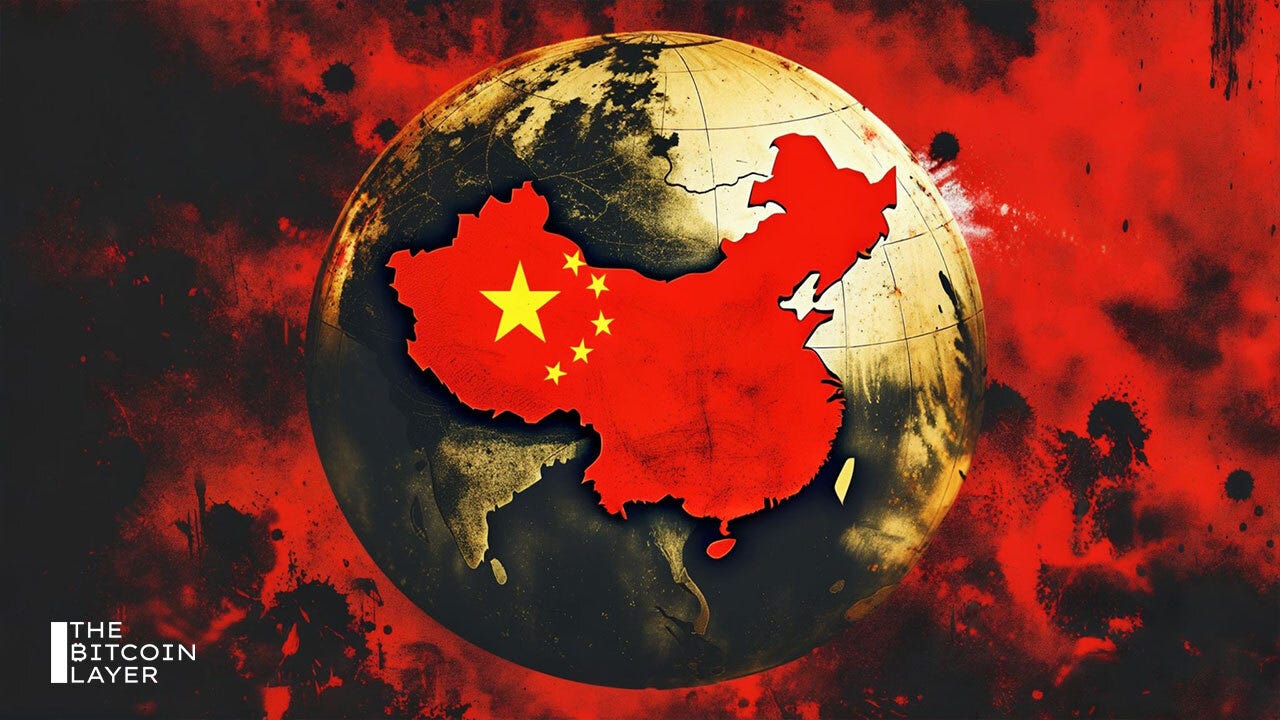Dear Readers,
It’s Thinking Time! After weeks of analyzing the US-China trade war, it feels surreal to write that the two countries have agreed to slash tariffs for 90 days as talks begin to arrive at a mutually beneficial arrangement. Punishingly high tariffs will fall, but the fentanyl surtax imposed on China by President Trump for the communist country’s role in the fentanyl crisis will remain.
TBL Thinks is our way to summarize the most important paywalled, longer reads relevant to global macroeconomics, helping you cut through the noise. With that in mind, please enjoy.
Every Business Will Buy Bitcoin
Bitcoin isn’t just for the balance sheet anymore—it’s the benchmark.
On Wednesday, May 14, at 11 AM CT, join Unchained, Strive, and other bitcoin-native thinkers for a live online event exploring how bitcoin is reshaping capital allocation. Learn why more companies are building bitcoin treasuries—and why those who don’t risk falling behind.
❌ DON’T WRITE YOUR SEED ON PAPER 📝
It’s estimated that ~30% of Bitcoin is lost forever. Poor seed phrase security is a big reason why. This is why we use Stamp Seed, a DIY kit that enables you to hammer your seed words into a durable plate of titanium using professional stamping tools.
Heat-resistant to 3,000ºF, rust-proof, crush-proof, and time-proof
Compact and easy to hide
No loose parts, such as screws or letter tiles
Take 15% off with code: TBL.
US-China to Slash Tariffs Temporarily
The US and China agreed to slash tariffs on each others’ products for 90 days as the two countries commenced talks to arrive to a broader trade agreement. In a meeting hosted by Switzerland in Geneva, Treasury Secretary Bessent and his team met with Chinese Vice Premier He Lifeng. It is worth noting that this warm hospitality extended by Switzerland has moved the country to the front of the queue alongside the UK as both nations try and work trade deals out with the US, even as the rest of Europe drags its feet.
Delegates from China were spotted entering the Treasury Department on April 24, but on the same day several reports screaming “no trade talks with China” were seen making the rounds. Details of the two countries representatives meeting in Geneva on Saturday came out on Monday, wherein we learned the tenets of this 90-day agreement though a joint statement made by both parties.
Under this 90-day trade deal, the combined 145% of US tariffs on Chinese imports will come down to 30% by May 14, a figure which will include the 20% tariff levied on China by Trump for the country’s role in the fentanyl trade; 125% of China’s tariffs on US goods will drop to 10%. Important to note, Bessent indicated that some fentanyl tariffs could come off if Washington sees “excellent engagement” from Beijing towards solving that crisis.
Secretary Bessent stated that both countries do not want a “generalized decoupling”, however, the US is going to do a “strategic decoupling” instead, focusing on items impacting national security interests such as semiconductors, medicines, steel, stating that Chinese reliance on these industries during the pandemic caused hardship on the US.
News out of Brussels is that Europe is relieved at this 90-day ceasefire in the global trade war as it allays some fears of the European market being flooded with Chinese goods redirected from the US market.
But the more urgent issue in Geneva wasn’t trade—it was fentanyl. And while that part of the conversation stayed behind closed doors, it may have mattered most.








